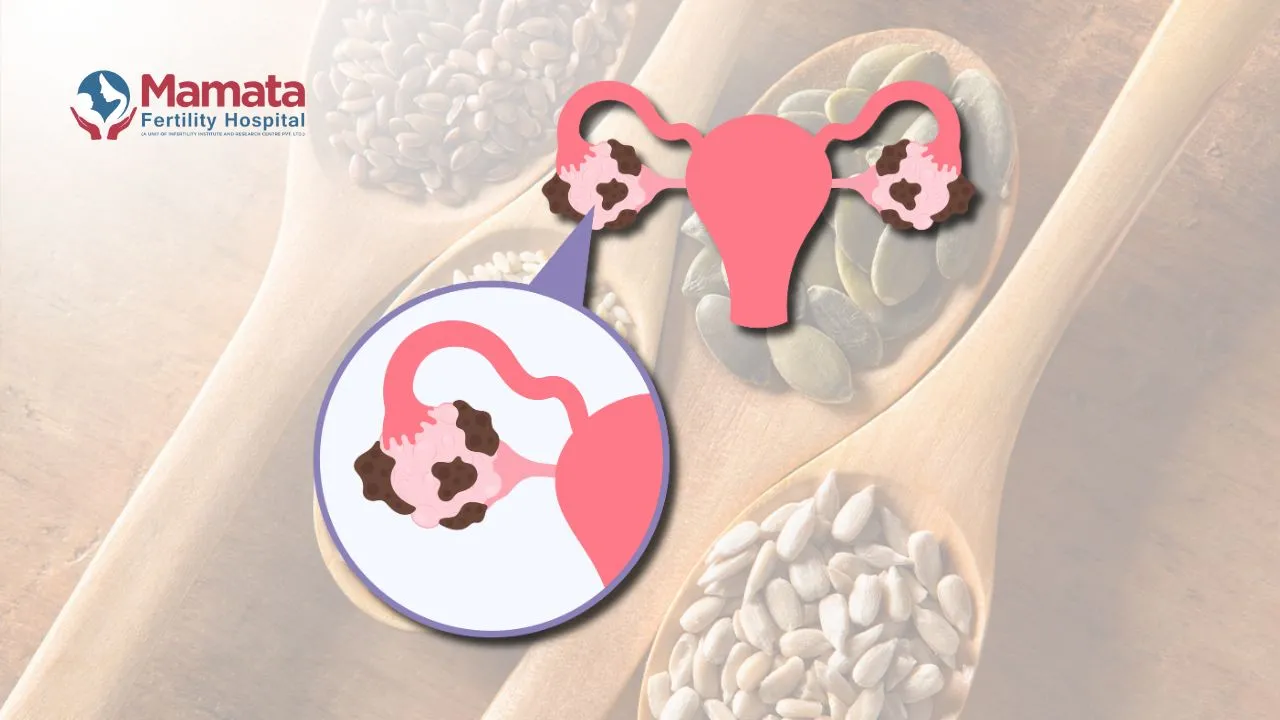Polycystic Ovary Syndrome (PCOS) affects millions of women, causing hormonal imbalances, irregular periods, weight gain, and fertility challenges. With no one-size-fits-all treatment, many women explore natural remedies to manage symptoms. Seed cycling is one such approach that has gained popularity. But does it help?
Seed cycling involves rotating specific seeds to support hormone balance throughout the menstrual cycle. Advocates claim it can improve menstrual regularity, alleviate PCOS symptoms, and boost fertility. But is seed cycling worth trying for PCOS? This article digs into the science, benefits, and expert insights to help you decide.
What is Seed Cycling?
Seed cycling is a dietary practice that involves consuming specific seeds during different phases of your menstrual cycle to help regulate hormonal fluctuations. Here’s how it typically works:
- Follicular Phase (Day 1 to 14): Flaxseeds and pumpkin seeds are consumed daily to support estrogen production and metabolism.
- Luteal Phase (Day 15 to 28): Sunflower and sesame seeds are incorporated to promote progesterone balance.
These seeds are rich in nutrients like lignans, zinc, magnesium, and healthy fats, which are believed to influence hormone levels in positive ways. The goal is to harmonize estrogen and progesterone, key hormones that significantly influence menstrual health.
How Does Seed Cycling Work for PCOS?
PCOS is associated with hormonal imbalances, including elevated androgens (male hormones) and disrupted levels of estrogen and progesterone. Seed cycling is a natural approach that may help regulate these imbalances. Flaxseeds, rich in lignans, can bind to excess estrogen, promoting hormonal balance during the follicular phase. Pumpkin and sunflower seeds, high in zinc, may support progesterone production during the luteal phase, which is crucial for hormonal balance and fertility. Additionally, the nutrients found in seeds, such as omega-3 fatty acids and magnesium, can reduce inflammation and support metabolic health, offering potential benefits for women with PCOS.
Scientific Evidence & Effectiveness
While seed cycling sounds promising, its effectiveness lacks robust scientific backing. Here’s what we know:
Flaxseed Benefits: Some studies suggest flaxseeds can positively affect estrogen metabolism and reduce hormone-related conditions. For example, flaxseeds may help women with PCOS improve menstrual regularity due to their lignan content.
Pumpkin, Sunflower, and Sesame Seeds: Although rich in zinc, selenium, and other micronutrients, there’s limited direct evidence linking these seeds to hormonal improvements in PCOS.
Lack of Comprehensive Research: There are anecdotal claims and small-scale studies supporting seed cycling. However, large-scale clinical trials to verify its specific role in PCOS management are scant.
How to Incorporate Seed Cycling into Your Diet
It’s easy to get started with seed cycling. Here are some practical tips:
Step 1. Choose Fresh, Raw Seeds
- Use organic, unprocessed flaxseeds, pumpkin seeds, sunflower seeds, and sesame seeds for maximum nutritional benefits.
Step 2. Stick to the Right Phases
Day 1-14 (Follicular Phase): 1 tablespoon each of flaxseeds and pumpkin seeds daily.
Day 15-28 (Luteal Phase): 1 tablespoon each of sunflower and sesame seeds daily.
Step 3. Grind Seeds for Better Absorption
Grinding seeds like flax and sesame ensures your body absorbs their nutrients effectively.
Step 4. Add Seeds to Meals
Sprinkle seeds over oatmeal, yogurt, or salads.
Blend them into smoothies.
Add them as a garnish to soups or baked goods.
Step 5. Stay Consistent
Consistency is key. It may take a few months to notice any improvement.
Does Seed Cycling Help with Fertility?
Seed cycling may indirectly support fertility by balancing hormones, improving menstrual health, and reducing inflammation. Women with PCOS trying to conceive may find this approach helpful when combined with medical fertility treatments.
At Mamata Fertility Hospital, Hyderabad, specialists often recommend a holistic approach, combining natural remedies like seed cycling with evidence-based treatments such as ovulation induction or IVF for optimal fertility outcomes.
Expert Opinion from Mamata Fertility Hospital, Hyderabad
The fertility experts at Mamata Fertility Hospital, Hyderabad, highlight that while seed cycling offers nutritional benefits, it should not replace proven medical treatments for PCOS. Women with PCOS often require personalized care involving lifestyle adjustments, medication, and fertility-focused strategies for better results.
Their team emphasizes that integrating seed cycling into a well-rounded PCOS management plan can complement medical interventions, improving overall reproductive health.
Conclusion
Seed cycling offers a nutrient-dense, natural approach to supporting hormonal health, and many women find it helpful for managing PCOS symptoms. However, it should be seen as a complementary practice rather than a standalone treatment.
If you’re considering seed cycling for PCOS, consult with a healthcare professional to create a comprehensive management plan. With the guidance of experts like those at Mamata Fertility Hospital Hyderabad, you can explore both natural remedies and medical treatments for optimal outcomes.




